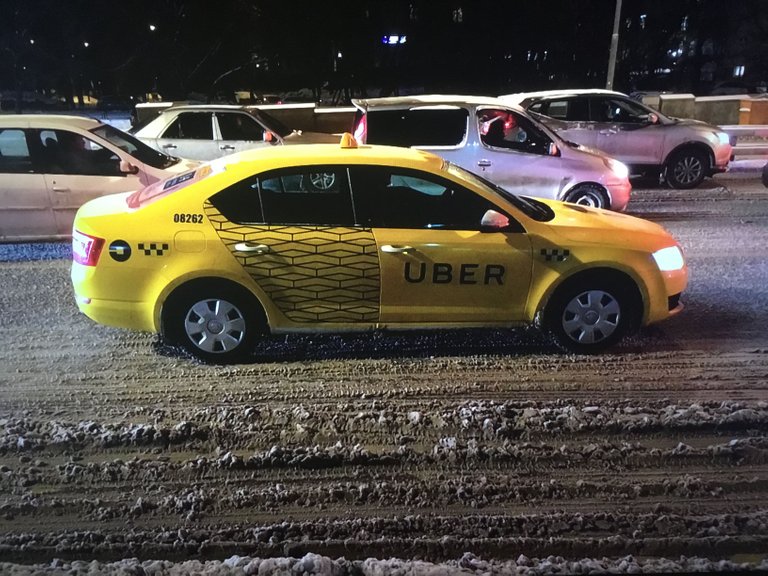THE TRUTH OF JOBS: THE NEW CAPITALISTS

The growth of communications networks and highly personal computing devices has made possible a profound transformation of capitalism itself.
What is a capitalist?
What, exactly, defines a person as a 'capitalist'? Traditionally, it was owning the means of production that served to distinguish the capitalist from the worker. Throughout the 19th and 20th centuries, the 'means of production' (certainly, of mass production) were factories and department stores that were hugely expensive to operate and therefore tended to be out of reach to all but the most monied of families. Some of those huge businesses did start from humble beginnings. Think of the global chains that began life as market stalls. But mostly the monied classes owned the means of production and appropriated wealth from the working classes actually producing it.
Now, though, thanks to increasingly cheap, powerful and connected information technology, we are seeing new forms of employment where the means of production is owned by the worker, making them (if we follow old definitions) capitalists. What those who we would once have called ‘capitalists’ owns in this brave new world are (in the words of Guy Standing) "platforms that maximise profit through ownership and control of the technological apparatus, protected by patents and other forms of intellectual property rights". This has given rise to seemingly impossible businesses, such as taxi firms that own no vehicles and holiday companies that own no property.
Often, they don't have employees either but rather "local entrepreneurs and independent contractors who work for themselves" (to quote the support centre for TaskRabbit).
Uber

(Image from wikimedia commons)
The premier example of this new business arrangement is probably Uber. This is the aforementioned taxi company that owns no taxis. Indeed, the company insists it is a platform rather than a taxi service.
Thanks to its being a platform provider, when Uber sets itself up in a town or city it is able to operate a flexible, demand-based fare scheme where the price of a ride can go up or down in response to high or low demand for fares. Also, once established, Uber offers other transport-related services, such as same-day deliveries and cycle courier services. According to Guy Standing, "it can raise cash quickly from new city operations and has been able to tap investors for huge sums- more than $9 billion by the end of 2015- with which to intimidate competitors".
Meanwhile, the owners of the means of production are private car owners who use an Uber app on their phones to locate customers in need of a ride. In other words, Uber works as a middleman, connecting self-employed drivers with customers. Thanks to a complex array of subsidies and incentives that can in some cases add up to 130 percent of the fare, Uber is more than capable of attracting drivers and undercutting its rivals. It is not adverse to losing money. In the first half of 2015, operational losses reached $1 billion.
This might seem even weirder than the idea of a taxi firm that owns no vehicles. A company that sets out to make losses sounds like one that has no understanding of capitalism whatsoever. But, of course, there is a point to all this short-term loss, which is to destroy the competition and gain monopoly control in the long term.
This tactic has had an adverse effect on Medallion Financial, the company that makes loans to yellow taxi drivers so they can buy their licences (known as 'medallions'). Despite rising profits, Medallion Financial has lost more than half its market share and its ability to help people become conventional taxi drivers could well be impossibly compromised. London black cab drivers have similarly complained of being no match for Uber's predatory price policies.
As we have seen, the self-employed drivers who use the Uber platform are among the beneficiaries, thanks to the loyalty premiums the company pays. But this is only a temporary benefit that ends once the ambition of monopoly control has been achieved. In cities where Uber has successfully established itself, drivers have seen their earnings cut.
Uber takes up to 30 percent of each fare. Airbnb makes up to 15 percent on each booking. Such transaction fees far exceed the development of the technology, the payment system and other aspects of the platform such companies provide. This has lead Guy Standing to conclude that these "labour brokers are rentiers, earning a lot for doing little, if we accept their claim that they are just providing technology to put clients in touch with independent contractors of services".
Entrepreneurs?
And then there are those so-called 'independent contractors' and 'local entrepreneurs' providing the labour and services such platforms broker. Do they really live up to such labels? One can appreciate why platform providers of the gig economy would prefer to view those reliant on the platform as 'independent contractors' as opposed to 'employees', because if that is what they are then they are not covered by labour laws that would entitle them to such rights as a minimum wage, sick pay or a pension.
The truth is that workers in the gig economy occupy an intermediate state between independent contractor and employee. To be a gig worker is often to bear most of the costs that come with self-employment, for example paying for insurance against accidents and carrying out maintenance of equipment essential to the job (duties that would be undertaken by more traditional businesses). At the same time, given that they depend on the labour broker to obtain work and the platform may impose rules that traditional employees have had to abide by (such as wearing whatever the company tells them to) they are not really self-employed. Uber, for instance, requires its drivers to accept at least 80 percent of drive requests, and insists on drivers maintaining a rating of at least 4.6 out of 5 stars. Guy Standing has described this as "a low-cost way of inducing self-exploitation. Ratings are not just a feedback mechanism; they are a means of monitoring and disciplining without the need for a supervisor. The platform is part of the panopticon state in which surveillance is being automated, since they impose constant regulation with little transparency or accountability".
Perhaps 'dependent contractor' would more accurately describe the role of an Uber driver or worker undertaking tasks for TaskRabbit? Talking of which, that particular platform provider illustrates how the gig economy is commodifying all kinds of activities that were hitherto work outside of the smaller sphere of 'jobs'. Many people, for example, no longer shop for themselves but prefer to do it online and rely on home delivery. Thus, the 'work' of shopping becomes somebody else's job (and quite a tough job, if the stories of people falling asleep on their feet from so much running around trying to keep up with demand in fulfilment warehouses are anything to go by). Other examples would include queuing and dog-walking, both of which are activities that have been turned into tasks for 'entrepreneurs' in the gig economy to compete amongst each other to complete.
But, seriously, how many people are likely to build a business based on standing in line for some member of the salariat who is too busy to queue themselves? The platform provider that brokers labour such as this has a system that assigns 'independent contractors' to tasks who then have thirty minutes to accept or reject that task. But rejection is not without consequences, for failure to respond within a certain time or to accept a certain amount of tasks can result in one's removal from the 'community'. The tasker thus has to ensure they are on-call, ready to provide whatever menial service the app 'suggests' they take. This ironically makes it harder for people to take on extra jobs and use such platforms as a means to top up their income (as many contractors of gig work like to think happens). It also restricts the very entrepreneurialism taskers are supposed to exemplify. As a Facebook comment concluded, "anyone left working for TaskRabbit is an indentured servant...You are not growing your own business; you are growing TR as a business".

(Queuing is a viable means of entrepreneurialism? Image from wikimedia commons)
Meanwhile, the flexibility of gig work, zero-hours contracts and other features of 21st-century employment, work to further the capitalist drive to commodify labour. Luke Biewald of Crowdflower exemplified this with his admission, "before the Internet, it would be really difficult to find someone, sit them down for ten minutes and get them to work for you, and then fire them after those ten minutes. But with technology you can actually find them, pay them the tiny amount of money and then get rid of them when you don't want them anymore".
This ultimate commodification of labour hardly sounds like the empowerment one often associates with being a ‘capitalist’, but in this new era of capitalism owning the means of production does not necessarily guarantee you a ticket out of exploitation by rentiers. Far from it.
REFERENCES
“Austerity” by Kerry-Ann Mendoza
“Why We Work” by Eric Schwartz
“The Corruption of Capitalism” by Guy Standing
@extie-dasilva (67) you describe the dystopian View that I saw so clearly in Marshall Brain's book Manna 🤔 how can the society turn this around when every reward and motivation goes to the middleman who takes none of the responsibility and owns none of the resources? Distributed Ledger technology is rumored to have solved this problem by being Byzantine fault tolerant 👍 what seems lacking is the will to implement and a method of distribution 🗣️👷♀️ so that all may share in the bounty of civilized society 🍰🍦🔔
I found Manna to be too simplistically black and white in the two societies it portrayed. It didn't speak much to me about how the dystopia was avoided and the utopia obtained. The formula it offered was far from enough.
Thanks for the replies, everyone.
Nice article
Thanks for such informative post about job keep it up bro @exite-dasilva
nice work my friend like your friends post .. and i will meresteem and upvote now friend
Nice opinions,,i like your post.
Many thanks for your unbiased information.
I prefer work on my own than having a job. Gigs are ok if you have a major source of the earnings, but if you are working form one gig to another it better be worth it.